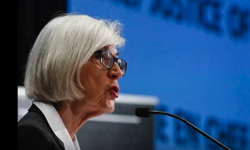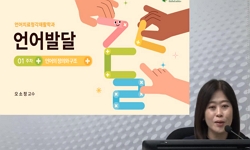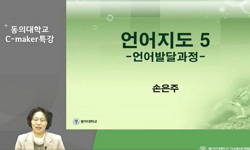배경 및 목적: 이 연구의 목적은 부모의 사회경제적 지위와 형제순서에 따라 3세와 7세 유아의 수용/표현 어휘발달에 차이가 있는가를 종단적으로 알아보기 위한 것이다. 방법: 아동패널의 3...
http://chineseinput.net/에서 pinyin(병음)방식으로 중국어를 변환할 수 있습니다.
변환된 중국어를 복사하여 사용하시면 됩니다.
- 中文 을 입력하시려면 zhongwen을 입력하시고 space를누르시면됩니다.
- 北京 을 입력하시려면 beijing을 입력하시고 space를 누르시면 됩니다.


Determining the Relationship of Children’s Socioeconomic Background with Vocabulary Development:
한글로보기https://www.riss.kr/link?id=A105445879
- 저자
- 발행기관
- 학술지명
- 권호사항
-
발행연도
2018
-
작성언어
-
-
주제어
Vocabulary development ; Longitudinal study ; Korean children ; SES ; Gender ; Birth order 어휘발달 ; 종단연구 ; 한국아동 ; 사회경제적지위(SES) ; 성별 ; 형제순서
-
KDC
370
-
등재정보
KCI등재,SCOPUS,ESCI
-
자료형태
학술저널
- 발행기관 URL
-
수록면
327-336(10쪽)
-
KCI 피인용횟수
1
- DOI식별코드
- 제공처
-
0
상세조회 -
0
다운로드
부가정보
국문 초록 (Abstract)
배경 및 목적: 이 연구의 목적은 부모의 사회경제적 지위와 형제순서에 따라 3세와 7세 유아의 수용/표현 어휘발달에 차이가 있는가를 종단적으로 알아보기 위한 것이다. 방법: 아동패널의 3세와 7세 대규모 종단적 발달 자료를 분석하였다. 결과: 모학력에 따른 어휘력의 뚜렷한 차이는 없는 것으로 나타났고 가구의 사회경제적 수준이 높을수록 7세의 점수가 더 높은 것으로 나타났다. 형제순서는 3세와 7세에서 모두 영향을 미쳤다. 논의 및 결론: 이 결과를 국내외 기존 연구들과 비교 논의하였다.
다국어 초록 (Multilingual Abstract)
Objectives: The current study examined whether early receptive and expressive vocabulary development is related with children’s socioeconomic background by analyzing longitudinal data of Korean children at 3 and 7 years of age. Methods: In general, ...
Objectives: The current study examined whether early receptive and expressive vocabulary development is related with children’s socioeconomic background by analyzing longitudinal data of Korean children at 3 and 7 years of age. Methods: In general, both vocabulary scores were about 2.5 times higher at 7 years than at 3 years. Socioeconomic background was significantly associated with expressive vocabulary development at age 3, and with the amount of change in the receptive scores between the ages of 3 and 7. While this relationship was maintained in the expressive scores of the 7-year-old, for lower income families the first child tended to develop relatively slowly while the third child developed the quickest. In addition, the results showed that girls’ scores tended to be higher than boys’ scores at 3-year-old, and the difference was maintained in all other scores. Results: There were effects of household income and birth order which interacted. The birth order effect pattern was very similar to the effect of household income. Conclusion: The results are discussed in comparison with previous Korean findings and with international ones.
참고문헌 (Reference)
1 이봉주, "한국 아동 발달에 대한 탐색적 연구-가구의 사회경제적 특성과 사회자본의 영향을 중심으로-" 한국아동복지학회 (31) : 107-142, 2010
2 장영은, "유아기 발달에 대한 생애 초기 가족 누적위험요인의 영향 - 가정학습환경을 매개로 -" 한국아동복지학회 (54) : 79-111, 2016
3 김수진, "우리나라 6세 아동의 말소리장애 출현율" 한국언어청각임상학회 22 (22): 851-851, 2017
4 장유경, "영아의 기질과 초기 어휘 습득의 관계" 한국아동학회 27 (27): 263-276, 2006
5 장유경, "영아, 어머니, 가정의 사회경제적 특성이 24개월 영아의 표현어휘 습득에 미치는 상대적 영향" 한국심리학회 산하 한국발달심리학회 24 (24): 137-154, 2011
6 이지연, "아동초기 사회경제적 지위(SES)와 가정환경이 언어발달에 미치는 영향" 한국심리학회 산하 한국발달심리학회 21 (21): 151-165, 2008
7 홍경훈, "수용ㆍ표현 어휘력 검사(Receptive and Expressive Vocabulary Test: REVT)의 개발연구: 문항개발 및 신뢰도 분석을 중심으로" 한국언어청각임상학회 14 (14): 34-45, 2009
8 윤혜련, "성별에 따른 영유아 언어발달의 특성 연구: SELSI를 중심으로" 한국언어청각임상학회 9 (9): 30-44, 2004
9 Pine, J. M., "Variation in vocabulary development as a function of birth order" 66 : 272-281, 1995
10 Fenson, L., "Variability in early communicative development" 59 : 1-185, 1994
1 이봉주, "한국 아동 발달에 대한 탐색적 연구-가구의 사회경제적 특성과 사회자본의 영향을 중심으로-" 한국아동복지학회 (31) : 107-142, 2010
2 장영은, "유아기 발달에 대한 생애 초기 가족 누적위험요인의 영향 - 가정학습환경을 매개로 -" 한국아동복지학회 (54) : 79-111, 2016
3 김수진, "우리나라 6세 아동의 말소리장애 출현율" 한국언어청각임상학회 22 (22): 851-851, 2017
4 장유경, "영아의 기질과 초기 어휘 습득의 관계" 한국아동학회 27 (27): 263-276, 2006
5 장유경, "영아, 어머니, 가정의 사회경제적 특성이 24개월 영아의 표현어휘 습득에 미치는 상대적 영향" 한국심리학회 산하 한국발달심리학회 24 (24): 137-154, 2011
6 이지연, "아동초기 사회경제적 지위(SES)와 가정환경이 언어발달에 미치는 영향" 한국심리학회 산하 한국발달심리학회 21 (21): 151-165, 2008
7 홍경훈, "수용ㆍ표현 어휘력 검사(Receptive and Expressive Vocabulary Test: REVT)의 개발연구: 문항개발 및 신뢰도 분석을 중심으로" 한국언어청각임상학회 14 (14): 34-45, 2009
8 윤혜련, "성별에 따른 영유아 언어발달의 특성 연구: SELSI를 중심으로" 한국언어청각임상학회 9 (9): 30-44, 2004
9 Pine, J. M., "Variation in vocabulary development as a function of birth order" 66 : 272-281, 1995
10 Fenson, L., "Variability in early communicative development" 59 : 1-185, 1994
11 Oliver, B. R., "Twins’ Early Development Study(TEDS) : a multivariate, longitudinal genetic investigation of language, cognition and behavior problems from childhood through adolescence" 10 : 96-105, 2007
12 Rodriguez, E. T., "Trajectories of the home learning environment across the first 5 years : associations with children’s vocabulary and literacy skills at prekindergarten" 82 : 1058-1075, 2011
13 Entwisle, D. R., "The transition to kindergarten: research, policy, training, and practice" National Center for Early Development & Learning 1999
14 Hart, B., "The social world of children: learning to talk" Paul H. Brookes Publishing 1999
15 Hoff-Ginsberg, E., "The relation of birth order and socioeconomic status to children’s language experience and language development" 19 : 603-629, 1998
16 Vanormelingen, L., "The influence of socio-economic status on mothers’ volubility and responsiveness in a monolingual Dutch-speaking sample" 36 : 140-156, 2016
17 Evans, G. W., "The environment of childhood poverty" 59 : 77-92, 2004
18 Brooks-Gunn, J., "The effects of poverty on children" 7 : 55-71, 1997
19 Hoff, E., "The Cambridge handbook of environment in human development" Cambridge University Press 590-606, 2012
20 Weisleder, A., "Talking to children matters : early language experience strengthens processing and builds vocabulary" 24 : 2143-2152, 2013
21 Entwislea, D. R., "Some practical guidelines for measuring youth’s race/ethnicity and socioeconomic status" 65 : 1521-1540, 1994
22 Ensminger, M. E., "Socioeconomic status, parenting, and child development" Lawrence Erlbaum Associates 13-27, 2003
23 Bowey, J. A., "Socioeconomic status differences in preschool phonological sensitivity and first-grade reading achievement" 87 : 476-487, 1995
24 Bradley, R. H., "Socioeconomic status and child development" 53 : 371-399, 2002
25 Arriaga, R. I., "Scores on the MacArthur Communicative Development Inventory of children from low and middle-income families" 19 : 209-223, 1998
26 Fernald, A., "SES differences in language processing skill and vocabulary are evident at 18 months" 16 : 234-248, 2013
27 Taylor, C. L., "Risk factors for children’s receptive vocabulary development from four to eight years in the Longitudinal Study of Australian Children" 8 : e73046-, 2013
28 Cartmill, E. A., "Quality of early parent input predicts child vocabulary 3 years later" 110 : 11278-11283, 2013
29 Walker, D., "Prediction of school outcomes based on early language production and socioeconomic factors" 65 : 606-621, 1994
30 Goldin-Meadow, S., "New evidence about language and cognitive development based on a longitudinal study : hypotheses for intervention" 69 : 588-599, 2014
31 Leaper, C., "Moderators of gender effects on parents’ talk to their children : a meta-analysis" 34 : 3-27, 1998
32 Mueller, C. W., "Measures of socioeconomic status : alternatives and recommendations" 52 : 13-30, 1981
33 Hart, B., "Meaningful differences in the everyday experience of young American children" Paul H. Brookes Publishing 1995
34 Lovejoy, M. C., "Maternal depression and parenting behavior : a meta-analytic review" 20 : 561-592, 2000
35 Pan, B. A., "Maternal correlates of growth in toddler vocabulary production in low‐income families" 76 : 763-782, 2005
36 Hoff-Ginsberg, E., "Linguistic input and the child’s acquisition of language" 92 : 3-26, 1982
37 Hoff, E., "Interpreting the early language trajectories of children from low-SES and language minority homes : implications for closing achievement gaps" 49 : 4-14, 2013
38 Vericker, T., "Infants of depressed mothers living in poverty: opportunities to identify and serve" Urban Institute 2010
39 Magnuson, K. A., "Increases in maternal education and young children’s language skills" 55 : 319-350, 2009
40 Pace, A., "Identifying pathways between socioeconomic status and language development" 3 : 285-308, 2017
41 Duncan, G. J., "Handbook of child psychology and developmental science" John Wiley & Sons 2015
42 Kaushanskaya, M., "Gender differences in child word learning" 27 : 82-89, 2013
43 Huttenlocher, J., "Early vocabulary growth : relation to language input and gender" 27 : 236-248, 1991
44 Halle, T., "Disparities in early learning and development: lessons from the Early Childhood Longitudinal Study–Birth Cohort (ECLS-B)" Child Trend 2009
45 Burchinal, M. R., "Development of academic skills from preschool through second grade : family and classroom predictors of developmental trajectories" 40 : 415-436, 2002
46 Shonkoff, J. P., "Committee on Psychosocial Aspects of Child and Family Health, & Committee on Early Childhood, Adoption, and Dependent Care. (2011). The lifelong effects of early childhood adversity and toxic stress" 129 : e232-e246, 2011
47 Layzer, J., "Closing the gap in the school readiness of low-income children" US Department of Health and Human Services 2008
48 Blanden, J., "Children of the 21st century–the first five years" The Policy Press 153-168, 2010
49 Weinert, S., "Childcare, early education and social inequality: an international perspective" Edward Elgar Publishing 89-108, 2017
50 Blair, C., "Child development in the context of adversity : experiential canalization of brain and behavior" 67 : 309-318, 2012
51 Oh, K. J., "CBCL 1.5-5 manual revised edition" Huno Consulting 2009
52 Rowe, M. L., "A longitudinal investigation of the role of quantity and quality of child‐directed speech in vocabulary development" 83 : 1762-1774, 2012
동일학술지(권/호) 다른 논문
-
Verbs and Their Thematic Role Processing Abilities for People with Aphasia
- 한국언어청각임상학회
- Kwi Hyun Jeong(정귀현)
- 2018
- KCI등재,SCOPUS,ESCI
-
- 한국언어청각임상학회
- Hyo-Jung Han(한효정)
- 2018
- KCI등재,SCOPUS,ESCI
-
- 한국언어청각임상학회
- Eun Ha Jo(조은하)
- 2018
- KCI등재,SCOPUS,ESCI
-
The Relationship between Hearing Impairment and Cognitive Function in Middle-Aged and Older Adults:
- 한국언어청각임상학회
- Soo Jung Lee(이수정)
- 2018
- KCI등재,SCOPUS,ESCI
분석정보
인용정보 인용지수 설명보기
학술지 이력
| 연월일 | 이력구분 | 이력상세 | 등재구분 |
|---|---|---|---|
| 2018 | 평가예정 | 계속평가 신청대상(등재유지) | |
| 2015-01-01 | 평가 | 등재학술지 유지(등재유지) |  |
| 2013-03-29 | 학술지명변경 | 한글명 : Communication Sciences and Disorders</br>외국어명 : Communication Sciences and Disorders |  |
| 2012-12-18 | 학술지명변경 | 한글명 : 언어청각장애연구</br>외국어명 : Communication Sciences and Disorders |  |
| 2011-01-01 | 평가 | 등재학술지 유지(등재유지) |  |
| 2009-01-01 | 평가 | 등재학술지 유지(등재유지) |  |
| 2007-06-25 | 학술지명변경 | 한글명 : 언어청각장애연구</br>외국어명 : Korean Journal of Communication Disorders |  |
| 2007-01-01 | 평가 | 등재학술지 유지(등재유지) |  |
| 2006-09-13 | 학술지명변경 | 한글명 : 언어청각장애연구</br>외국어명 : Korean Journal of Communication Disorders |  |
| 2005-10-14 | 학술지명변경 | 한글명 : 언어청각장애연구</br>외국어명 : Korean Journal of Communication Disorders |  |
| 2004-01-01 | 평가 | 등재학술지 선정(등재후보2차) |  |
| 2003-01-01 | 평가 | 등재후보 1차 PASS(등재후보1차) |  |
| 2001-07-01 | 평가 | 등재후보학술지 선정(신규평가) |  |
학술지 인용정보
| 기준연도 | WOS-KCI 통합IF(2년) | KCIF(2년) | KCIF(3년) |
|---|---|---|---|
| 2016 | 1.13 | 1.13 | 1.17 |
| KCIF(4년) | KCIF(5년) | 중심성지수(3년) | 즉시성지수 |
| 1.21 | 1.18 | 1.626 | 0.33 |




 스콜라
스콜라






